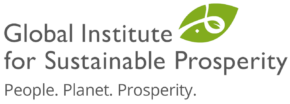FOR IMMEDIATE RELEASE
GRANVILLE, Ohio – Jerry Courvisanos (Research Scholar at the Global Institute, and Associate Professor of Innovation & Entrepreneurship at the Federation Business School, Australia) and Matias Boavida (faculty member at the Universidade Nacional Timor Lorosa’e (UNTL), Dili, Timor-Leste) co-authored a new policy report titled “Review of the Roadmap for Sustainable Development in Timor-Leste: An Economic Policy Report” (Policy Report No. 102, February 2018).
The report identifies the limitations of the Timor-Leste’s Government commitment to a roadmap for implementing the United Nations Sustainable Development Goals (SDGs), and sets out the challenge to develop an alternative economic model for economic, social, and ecological equity. Not addressing this matter immediately in this unified approach will undermine the country’s long fought over identity, forged as a historical civic value.
“This report embodies our vision for rethinking economic development in a more holistic way that shifts the focus away from economic growth for its own sake, and towards a broader improvement of quality of life,” said Fadhel Kaboub, President of the Binzagr Institute for Sustainable Prosperity.
In this policy report, Courvisanos and Boavida discuss how developing countries can engage in sustainable development. They employ an “eco-sustainable framework,” which is considered a more viable model for investment and innovation than the traditional 20th century models. They argue that 20th century models have proven to cause “devastating social fragmentation” and “ecological destruction.” Courvisanos and Boavida summarize their argument as follows:
“The problem with measuring development by the amount of growth in GDP is that such policies focus on strategies that can induce economic activity relatively quickly (e.g. public infrastructure, tax reductions, subsidies for business, incentives for innovation) and which have gains that are appropriated already by the educated and financially better off. This skews the gains from economic activity towards the top of the income share profile of a country.”
A brief promotional video for this policy note is available on the Binzagr Institute’s YouTube channel.
The Global Institute for Sustainable Prosperity is an independent public policy think-tank dedicated to the promotion of interdisciplinary research in the service of an improved quality of life for all members of society. The institute provides alternative public policy solutions that address a wide range of socio-economic and ecological problems faced by the global community. If you would like more information on the institute’s publications, please call 740-587-6315 or send an email to [email protected].
